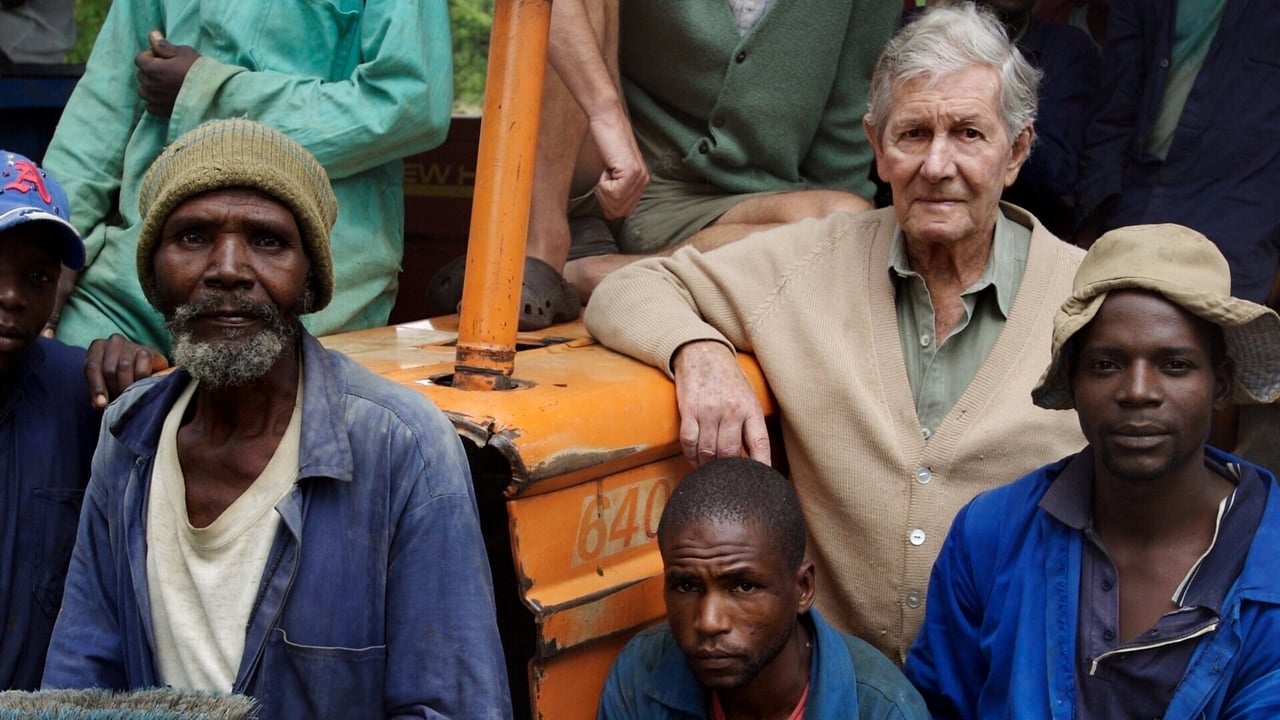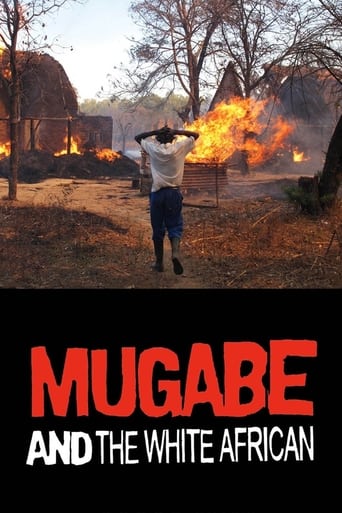

What makes it different from others?
... View MoreThat was an excellent one.
... View MoreBrilliant and touching
... View MoreThis film is so real. It treats its characters with so much care and sensitivity.
... View MoreWhile this documentary of a white farmer fighting for his land against the bullying dictator Mugabe and his 'land redistribution' program that reportedly redistributed land mostly to his cronies is certainly a stirring, fascinating battle, there is also something a little simplistic in it's attitudes. Almost something a little colonial.No one can defend Mugabe and his treatment of his own country, but the film acts as if there's no reason for lingering resentment of white, upper-class property holders after centuries of white domination. Even the lead character talks to and about his black workers in a sort of condescending 'see how well I treat them?' sort of way. (And never brings up that he's actually from South Africa, not Zimbabwe - it's not like the land he's fighting for is his ancestral home). I don't pretend to be any sort of expert on the situation in Zimbabwe (there are some fascinating back and forth arguments in some of the reviews here) But I can't help feeling things are not so simplistic when the white ex-South African owner of a huge farm talks about the blacks he works with as if they were children or less than his equal.Again, I am in not defending Mugabe. I know enough to see that he is clearly a ruthless, horrendous dictator, who has done great harm to blacks and white alike. I'm saying there is another, more subtle issue in this particular story that gets short shrift, making it feel a bit more like a polemic, and a bit less like an objective view than I wished. I don't know enough about Zimbabwe, but neither does most of the world. Just a few minutes of history to deal with the context both the country's history and the farmer's, might have made me either trust the films' arguments more deeply, or question them more thoroughly. Now I was left with a vague feeling of 'is this the whole story?'To quote Roger Ebert " "Mugabe and the White African" could certainly have looked more deeply. The filmmakers travel to Kent in England to speak with the family of Campbell's son- in-law, but never have any meaningful conversations with the African workers on Campbell's farm."Or The New York Times: "It should be pointed out, though, that Ms. Bailey and Mr. Thompson achieve their results largely through the narrowness of their focus. Almost the only voices we hear are those of the farmers, their families and their lawyers... It's possible to honor the suffering of the Campbells and the Freeths and to revile the actions of the Mugabe government and, at the same time, to be uneasy with the emotions the film stirs and to feel that its one-sidedness and its nearly complete lack of historical and cultural context are problems. The farm's black work force is frequently on screen and is presented as sympathetic to its employers, but the workers rarely speak. It's impossible to know what their true, probably complex and contradictory feelings are. Mr. Freeth asks why being a white African should be any different than being a white American or a white Australian. It's a good sound bite, but a moment's reflection tells you that the comparison doesn't hold water: the courses of colonialism and racial strife were radically different in America and Australia than they were in Africa. That doesn't make Mr. Freeth's cause any less just, but it does mean that "Mugabe and the White African" needs to be approached with care.To sum up: A worthwhile documentary, that gets very tense at times as clandestine footage captures the threats the farmer and his family live under, and their struggle through the courts. But it misses, or perhaps intentionally ignores the bigger picture that explores how things got to where they are in the first place. It's very hard to make any documentary that is explicitly about modern African black on white racism, without looking at the context and the larger history. Not to forgive or absolve it. But to understand it. And surely understanding where an evil comes from is a crucial part of any examination of it.
... View MoreTo be fair I shouldn t be reviewing it because I turned it off after the first fifteen minutes. At the first shots of sad, wide eyed African children. I knew what I was in for and din't fancy the ride. These children wernet given a voice, nor were their parents. The film never questions the assumption that the land belongs by rights to the white settlers. The tone and language of the white family is classic colonial era: paternalistic towards 'our' workers. Resting on the (unspoken) assumption that Africans are irrational, child like and incapable of managing things themselves. Instead of rigorous analysis of a complex series of events, giving voice to the different interests and points of view, the film relies upon emotional manipulation of the audience. The situation in Zimbabwe is the culmination of years of interference in the continent on the part of Europeans. Shame this film couldn't offer more insight. It says much about the media and visual illiteracy of our culture along with Britain's unwillingness to confront the legacy of its colonial past that this film has been so feted to the extent of winning a BAFTA award. Still, people will believe the truths they want to believe.
... View MoreThis movie is somewhat interesting but only shows one side of the story and half truth. 4000 white farmers lost their farms, but forget to mention that more than 300000 landless people were resettled on those farms. Previously due to the Rhodesian apartheid laws, less than 4% of the white population owned more than 70% of the most arable land.African people were previously stacked away on small reserves by previous Rhodesian apartheid regime.In 1974 when father Campbell got his farm. Thousand of black people were still forcibly removed from prime agricultural land, owned by their ancestors since thousands of years, by the Rhodesian regime of Ian Smith.With the land redistribution, the life of more than 300000 Zimbabweans was changed for the better by making them owners of their own land instead of mere workers. Those people also hire black workers or provide jobs for large families.That the land was always one of the main issue during the liberation war fought by courageous African people. Many who lost their lives or family members while fighting against the Rhodesian apartheid regime.During the Lancaster negotiation with the former Rhodesian regime of Ian Smith, negotiations led by Mugabe and Nkomo, land was identified as one of the main issues. Considering that Africa was still largely an agricultural economy and still is. Land was very important for the direct survival of the people.
... View MoreThis is no doubt one of the most moving documentaries I have seen in a long time. The story of a family who decided not to bow to pressure, not to run away, not to give up in the face of the most horrendous state brutality speaks for itself and I find some of the criticisms voiced in other reviews hard to stomach. It is not Mugabe and his oppressive regime that need to be explained, it is the fact that his system is allowed to continue without much international challenge that is abhorrent. The courage of Michael and Ben in making this documentary, in continuing with their case and in showing the real face of Mugabe and his small but brutal elite is worth noting and remembering.
... View More